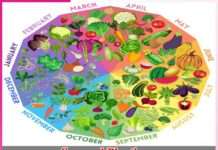Nutrition Essentials: Fuelling Your Body Right
Introduction: We can travel anywhere by refueling our car. It facilitates our actions and simplifies our tasks. Similarly, taking care of our bodies is essential to living. Every physical activity we engage in throughout our lives requires the appropriate diet.
We fly in this contemporary, quick-paced world when once we had to stroll or crawl. In the end, this causes significant harm that is occasionally irreparable. Our eating habits are crucial in this situation. Equipping ourselves with the information and awareness of our bodies’ requirements might be perplexing. So, this article will clarify what our body genuinely needs.
Also Read:
- Correct Diet & Exercise will Increase Height, Thyroid can also Stop Height
- What Should Be The Diet In Old Age
- Pregnancy and Nutrition
- PROTEIN- WHAT & WHY A MUST
- World Health Day
- One Hour Daily for Your Health
Table of Contents
What is Nutrition?

Essential Nutrients: The Building Blocks of Life:
Essential nutrients are the key components our bodies require to function correctly. In general, they can be divided into two groups: macronutrients and micronutrients.
Macronutrients:
These nutrients are required in larger quantities and provide the primary energy sources for our bodies.
- Carbohydrates: The main source of energy is carbohydrate in foods like grains, fruits, and vegetables.
- Proteins are vital for growth, tissue repair, and enzyme production. Excellent sources include pulses specially soya, legumes, gram and dairy products.
- Fats are essential for hormone regulation, cell membrane structure, and energy storage. Olive oil, avocados, almonds, and seeds all contain healthy fats.
Micronutrients:
These nutrients are required in smaller amounts but play crucial roles in various physiological processes.
- Vitamins are essential for various functions, from maintaining solid bones (Vitamin D) to supporting the immune system (Vitamin C). They can be found in fruits, vegetables, and whole grains.
- Minerals: Minerals like calcium, iron, and zinc are essential for maintaining healthy bones, transporting oxygen, and operating enzymes. Sources include dairy products, leafy greens, and nuts.
Fueling Your Body: Uses and Sources of Essential Nutrients
To fuel our body right, we must incorporate various nutrient-rich foods. Here are some essential nutrients, their uses, and the sources from which we can obtain them:
Carbohydrates:
As the primary energy source, carbohydrates are crucial for fueling our brains, muscles, and organs. Healthy sources include whole grains (brown rice, quinoa), fruits (apples, berries), and vegetables (sweet potatoes, broccoli).
Proteins:
Our biological tissues, including our skin, muscles, and hair, are made up of proteins, the building blocks. Incorporate plant-based proteins (tofu, lentils), and dairy products (yogurt, cottage cheese) to meet your protein needs.
Fats:
Healthy fats are essential for brain health and hormone regulation. Avocados, nuts (almonds, walnuts), seeds (chia, flaxseed), and olive oil are excellent sources of monounsaturated and polyunsaturated fats.
Vitamins and Minerals:
These micronutrients are vital for various physiological functions. Citrus fruits contain Vitamin C, while Vitamin D is synthesized by the skin through sunlight exposure. Iron-rich foods include spinach and beans, while calcium can be obtained from dairy products and fortified plant-based milk.
Importance of Fueling Our Body:
Optimal Physical Health:
Essential nutrients, such as vitamins, minerals, proteins, and fats, play crucial roles in maintaining the proper functioning of our body systems. They support tissue growth, repair, and regeneration, ensuring our organs work efficiently.
Energy Production:
Carbohydrates are our bodies’ primary energy source. Consuming enough carbohydrates provides our muscles and brains the fuel they need to perform at their best.
Immune System Support:
Proper nutrition is vital for a robust immune system. Nutrients like vitamin C, D, zinc, and iron help fortify our immune response and protect us from infections and illnesses.
Cognitive Function and Mental Health:
Nutrients like omega-3 fatty acids, antioxidants, and B vitamins are essential for brain health and cognitive function. A well-nourished brain is better equipped to focus, concentrate, and maintain emotional well-being.
Muscle Maintenance and Recovery:
Proteins are essential for building and repairing muscles. Athletes and active individuals require adequate protein intake for muscle recovery and growth.
The Best Way to Fuel Our Bodies with Nutrients:
Eat a Variety of Foods:
Consuming a diverse range of foods ensures you receive a broad spectrum of nutrients. Include fruits, vegetables, whole grains, lean proteins, healthy fats, nuts, and seeds in your meals to cover all essential nutrients.
Prioritize Whole Foods:
Whole foods are minimally processed and retain their natural nutrient content. Choose whole grains (brown rice, quinoa), fresh fruits and vegetables, and plant-based proteins.
Emphasize Fruits and Vegetables:
These are rich sources of vitamins, minerals, and antioxidants. Aim to have bright fruits and veggies on half of your plate to ensure a wide array of nutrients.
Choose Lean Proteins:
Incorporate lean proteins like tofu, legumes, and low-fat dairy products. Proteins are essential for muscle repair, immune function, and enzyme production.
Include Healthy Fats:
Opt for unsaturated fats in avocados, nuts, seeds, and olive oil. These fats support heart health, brain function, and hormone regulation.
Limit Processed and Sugary Foods:
Highly processed foods often contain excessive added sugars, unhealthy fats, and high sodium levels. Minimize their consumption and opt for natural, nutrient-dense alternatives.
Stay Hydrated:
Water is essential for digestion, nutrient absorption, and overall health. Drink a lot of water throughout the day, if possible and limit sugary beverages.
Eat Mindfully:
Pay attention to hunger cues and eat when you’re genuinely hungry. Avoid distractions like screens during meals and savor each bite to promote better digestion.
Plan and Prepare Meals:
Plan your meals ahead of time and prepare them at home whenever possible. This way, you have better control over the ingredients and can ensure balanced nutrition.
Fueling Your Body at Different Life Stages:
Nutritional requirements change as we progress through various life stages, from infancy to old age. Tailoring our diets to meet the specific needs of each step is crucial for optimal growth, development, and well-being.
Nutrition for Infants and Children:
Breast milk is the prime source of nutrition for infants, providing essential nutrients and immune support. As children grow, introducing a variety of fruits, vegetables, and whole grains helps establish healthy eating habits.
Nutrition for Adolescents:
Adolescence is a rapid growth and development period. Adequate calcium, iron, and protein intake is essential for bone health, brain development, and hormonal balance.
Nutrition for Adults:
Maintaining a balanced diet is essential for energy and productivity and lowering the chance of developing chronic illnesses like diabetes and heart disease.
Nutrition for Seniors:
As we age, nutrient absorption may decline, making it crucial for seniors to focus on nutrient-dense foods and consider supplements to meet their nutritional needs.
Conclusion: By recognizing the significance of appropriately fuelling our bodies at different life stages, we can make informed choices promoting our well-being and longevity. Remember, the key to a healthy life begins with nourishing your body with the proper nutrients and embracing a well-balanced, diverse, and nutritious diet.











































